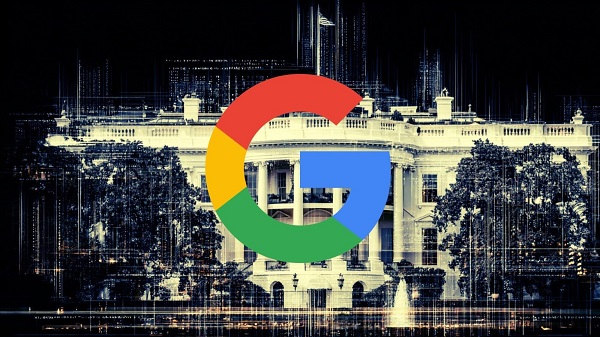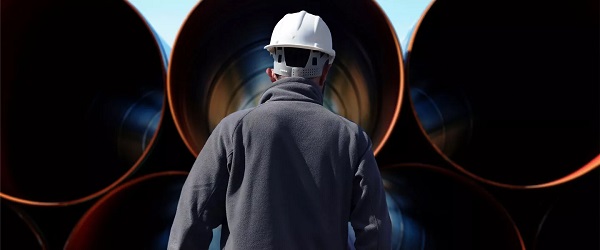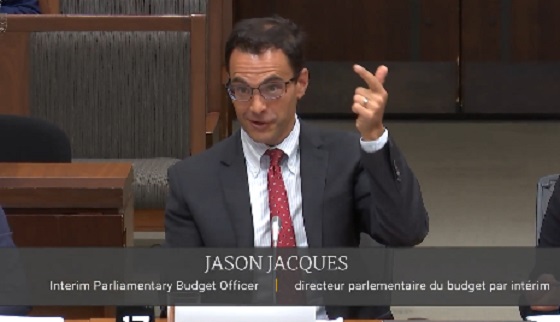Business
Todayville At The Home Show With Canadian Closet
Business
BC Ferries Deal With China Risks Canada’s Security

From the Frontier Centre for Public Policy
A BC Ferries contract with China risks national security, public transparency and Canadian safety. Why are we still looking the other way?
Scott McGregor exposes how a billion-dollar BC Ferries deal with a Chinese shipyard reflects a deeper failure: Canadian institutions are shielding Beijing’s interests—at taxpayers’ expense—while ignoring glaring national security risks.
BC Ferries, the taxpayer-owned company operating ferry services along the B.C. coast, didn’t just sign a billion-dollar shipbuilding contract in China; it handed Beijing leverage over Canadian infrastructure.
Behind the bureaucratic talk of cost and efficiency lies a deeper scandal: a taxpayer-funded deal that puts national security, public transparency and Canadian citizens at risk, all to benefit a hostile regime.
When theBreaker.news, an independent investigative outlet in BC, filed freedom of information requests to uncover the contract’s details, BC Ferries refused to release a single page. The excuse? Disclosure might threaten its financial position, safety and the “interests of third parties.”
This refusal didn’t happen in a vacuum. It came the same day Chinese President Xi Jinping stood next to Russian President Vladimir Putin and North Korean leader Kim Jong Un in Beijing, giving a vivid display of authoritarian solidarity.
BC Ferries’ secrecy is bad optics. It flies in the face of multiple rulings by the B.C. Information and Privacy Commissioner, who has repeatedly upheld the public’s right to see contracts signed by public bodies. Cities and Crown corporations have been ordered to disclose their agreements with FIFA, the international soccer governing body, and with B.C. Place Stadium.
In fact, public institutions have disclosed deals far less sensitive than this one. Yet BC Ferries, propped up by a $1-billion loan from the Canada Infrastructure Bank (CIB), insists its Chinese shipbuilder must remain shielded from scrutiny. The result isn’t protection for taxpayers. It’s protection for Beijing’s leverage.
And that’s just the beginning. The more dangerous problem is legal. Canada has no bilateral agreements with China to guarantee fair legal treatment of its citizens. No non-prosecution provisions. No mutual legal assistance mechanisms. No safety net.
At home, corporations can sign remediation agreements to avoid prosecution if they cooperate and commit to reforms. But those agreements stop at Canada’s borders. They offer no protection for Canadians working in Weihai, the Chinese city where the vessels are built. If a dispute arises or Beijing flexes its power, those Canadians could face arbitrary detention, exit bans or national security charges. In a diplomatic crisis, they could become pawns.
This isn’t a theoretical risk. Michael Kovrig and Michael Spavor spent nearly three years in Chinese prisons after Canada detained Huawei executive Meng Wanzhou. That episode exposed the Chinese Communist Party’s playbook of hostage diplomacy. It should have ruled out any deal that places Canadian citizens or Crown assets under Chinese jurisdiction.
Yet even with that memory still fresh, the arrangement continues, quietly, with little public debate.
What we’re witnessing is a textbook case of hybrid warfare. Economic deals masked as trade. State financing disguised as commercial contracts. Political leverage embedded in infrastructure projects. And Canada, still clinging to the outdated promises of globalization, is paying for its own exposure.
At the moment when Beijing is supplying components for Russia’s war machine, Ottawa is greenlighting the outsourcing of core coastal infrastructure to a state-owned Chinese shipyard.
Parliament appears to be taking notice of the situation. The House of Commons Transport Committee has initiated a review of the $1 billion federal loan associated with the BC Ferries deal. The expected witnesses for this review include the CEO of the corporation, the CEO of the Canada Infrastructure Bank (CIB), Transport Minister Chrystia Freeland and Infrastructure Minister Gregor Robertson.
The review follows political pushback, including criticism from Freeland, who resigned from cabinet on Sept. 16, and had previously called the outsourcing decision “disappointing.”
This review is necessary because BC Ferries is a Crown-owned utility, governed by an NDP-appointed board and funded through federal support.
When a public entity conceals the terms of a massive contract and hands work to a Chinese state-controlled firm, it’s not just acting secretively. It’s normalizing a culture of opacity that weakens Canadian sovereignty and shields foreign interests from democratic accountability.
BC Ferries defends the deal by pointing to its projected economic benefits: four new major vessels, hybrid propulsion systems, 50,000 job-years and more than $4.5 billion in forecasted economic output.
But those figures come at the cost of strategic blindness.
Time and again, Canadian policymakers treat China like an ordinary business partner, even as the Chinese Communist Party uses law, finance and supply chains as tools of global influence. While other democracies are pulling back from partnerships with Chinese state firms, Canada looks the other way, tethered to outdated trade assumptions and short-term economics.
The remedy starts with sunlight. Contracts signed by public bodies must be disclosed, especially when they involve authoritarian regimes. But transparency is only the first step.
Canada must adopt a hybrid warfare lens for every major economic decision. That means asking hard questions: Does this deal strengthen or weaken our position? Does it open the door to foreign influence? Does it endanger Canadians abroad? Short-term savings can breed long-term dependency, and in China’s case, geopolitical exposure.
BC Ferries’ shipbuilding contract with China isn’t just a procurement mistake. It’s a warning.
Without legal safeguards, public oversight and strategic foresight, Canada isn’t just buying ferries; it’s handing over control.
And Canadians deserve better.
Scott McGregor is an intelligence consultant and co-author of The Mosaic Effect. He is a senior fellow at the Council on Countering Hybrid Warfare and writes here for the Frontier Centre for Public Policy.
Business
Google Admits Biden White House Pressured Content Removal, Promises to Restore Banned YouTube Accounts

Google admits bending to political pressure, but only long after the damage was already done
|
After years of denying bias, Google now concedes that it gave in to pressure from the Biden White House to remove content that did not breach its own rules.
The admission comes alongside a promise to restore access to YouTube accounts permanently removed for political speech related to COVID-19 and elections, topics where government officials had applied behind-the-scenes pressure to control the narrative.
This move follows sustained scrutiny from the House Judiciary Committee, which Reclaim The Net covered extensively, led by Chairman Jim Jordan (R-OH), who issued a subpoena and spearheaded an investigation that revealed the extent of government influence on content moderation decisions at Google.
In a letter from its legal representative, Google confirmed that it faced pressure from the federal government to suppress lawful speech.
We obtained a copy of the letter for you here.
Google revealed that it had been contacted multiple times by top federal officials regarding content on its platforms, even when that content did not break any rules.
The company stated that “Senior Biden Administration officials, including White House officials, conducted repeated and sustained outreach to Alphabet and pressed the Company regarding certain user-generated content related to the COVID-19 pandemic that did not violate its policies.”
According to the company, this outreach took place in a broader political climate that made it difficult to operate independently.
Google noted that “The political environment during the pandemic created significant pressure on platforms, including YouTube, to address content that some deemed harmful.”
While describing the situation, Google made clear its disapproval of such efforts, stating bluntly that “This pressure was – and remains – unacceptable and wrong.”
In response to this period of politicized enforcement, the company said it is now taking steps to reverse prior censorship decisions.
As part of that process, Google confirmed that “Reflecting the Company’s commitment to free expression, YouTube will provide an opportunity for all creators to rejoin the platform if the company terminated their channels for repeated violations of COVID-19 and elections integrity policies that are no longer in effect.”
The letter also clarified YouTube’s approach to content moderation, explicitly rejecting the use of outside arbiters. “YouTube does not use third-party fact checkers to determine whether content should be removed or labeled,” the company said.
Acknowledging the role of political diversity on its platform, Google stated that “YouTube values conservative voices on its platform. These creators have extensive reach and play an important role in civic discourse.”
The company concluded with a broader statement rejecting government interference in lawful online speech, saying that “The federal government should not play a role in pressuring private companies to take action on lawful speech.”
The revelations echo findings in the Murthy v. Missouri case, where lower courts found that federal agencies had taken on a role similar to an “Orwellian ‘Ministry of Truth.’” While the Supreme Court dismissed the case on procedural grounds, the core issues around government pressure on speech remain unresolved.
The investigation into Google is part of a broader probe into how tech firms handled information related to the 2020 election, COVID-19, and high-profile political topics such as Hunter Biden’s laptop. The committee’s findings show a pattern of censorship aligned with political objectives.
|
|
|
|
You read Reclaim The Net because you believe in something deeper than headlines; you believe in the enduring values of free speech, individual liberty, and the right to privacy.
Every issue we publish is part of a larger fight: preserving the principles that built this country and protecting them from erosion in the digital age.
With your help, we can do more than simply hold the line: we can push back. We can shine a light on censorship, expose growing surveillance overreach, and give a voice to those being silenced.
If you’ve found any value in our work, please consider becoming a supporter.
Your support helps us expand our reach, educate more people, and continue this work.
Please become a supporter
Thank you for your support.
|
-

 Alberta14 hours ago
Alberta14 hours agoFederal policies continue to block oil pipelines
-

 Autism15 hours ago
Autism15 hours agoAutism – what we know
-

 espionage1 hour ago
espionage1 hour agoCanada Under Siege: Sparking a National Dialogue on Security and Corruption
-

 Business2 hours ago
Business2 hours agoGoogle Admits Biden White House Pressured Content Removal, Promises to Restore Banned YouTube Accounts
-

 Business2 days ago
Business2 days agoGun Buyback Program creating criminals out of law abiding citizens and directing police away from actual crime
-

 COVID-1921 hours ago
COVID-1921 hours agoSecond Massive Population Study Finds COVID-19 “Vaccines” Increase Risk of 6 Major Cancers
-

 Business1 day ago
Business1 day ago“If you don’t change, this is dying.” PBO warns Carney’s massive deficits are an extinction level threat
-

 Opinion2 days ago
Opinion2 days agoThe City of Red Deer’s financial mess – KPMG report outlines failure of council to control spending







